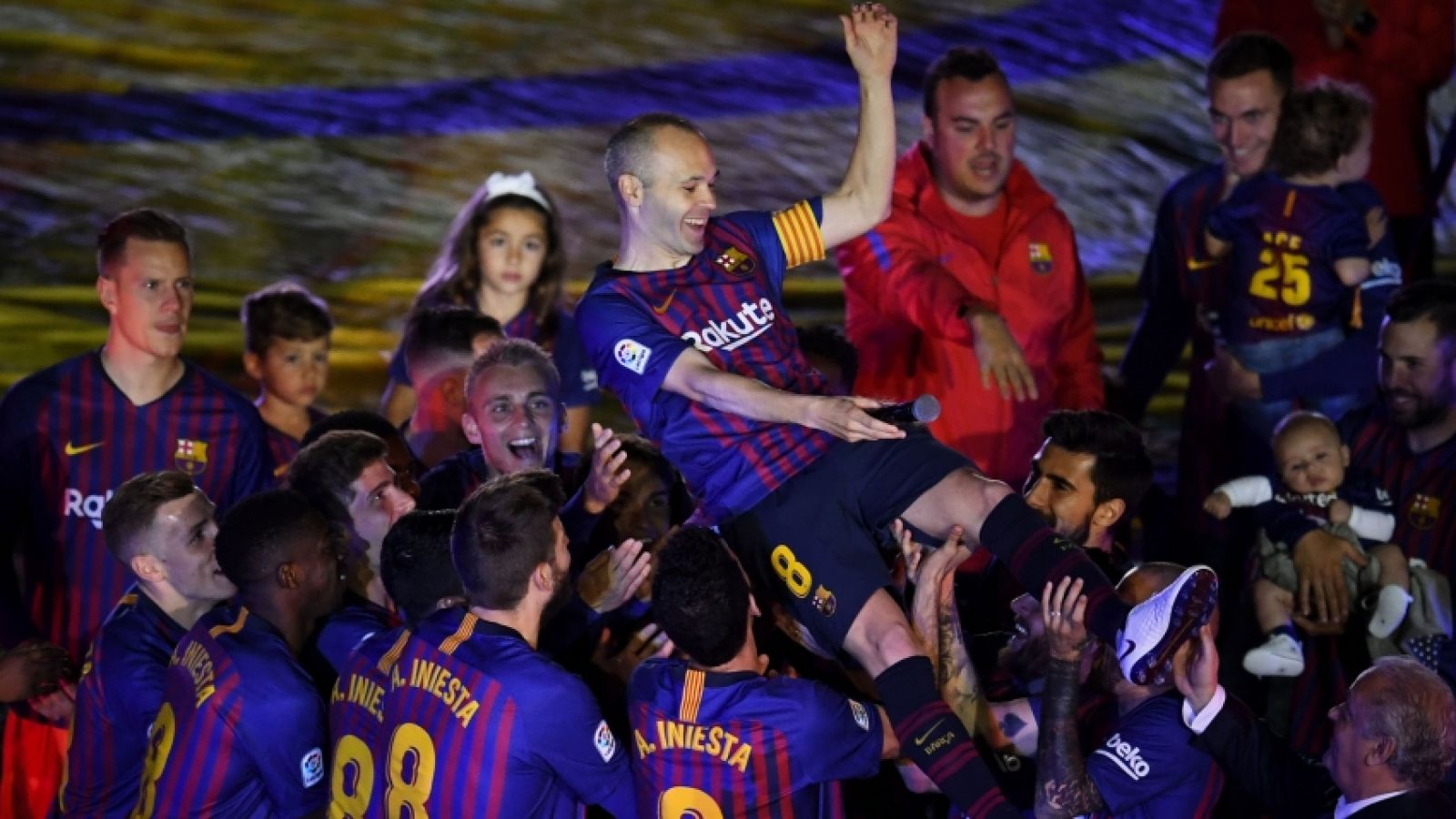
Like most major events to do with Barcelona, Andres Iniesta's Copa del Rey final farewell in 2018 was best summed up by Lionel Messi.
They had combined for the goal of the game. Iniesta glided forward, fed Messi, collected his return pass, dummied exquisitely past David Soria and fired home. After the jumping fist pump and the player huddle came Messi's tribute: eyes closed, he hugged his long-time team-mate, the image a silent reflection of the headline that would follow in AS the next day: "Iniesta, don't go!".
Messi knew, though. The news was confirmed the following Friday, but it came as no surprise: Iniesta was to leave Barcelona at the end of 2017-18, after 22 years at the club. He moved to Vissel Kobe, backed by Barca sponsors Rakuten, where he has already added two trophies to a staggering collection of 37 in his senior career for club and country.
The decision brought sadness, a sense of an era coming to a close, but also frustration. That Copa final, the Iniesta Final, showed everyone he still had plenty to offer European football as he approached the age of 34. But if anything, that strengthened the resolve that the time was right: like Xavi after the treble in 2015, Iniesta left on a high, his powers intact, his legacy immovable.
His achievements are remarkable. The Copa was his 34th career trophy; his 35th was LaLiga title number nine. He scored the winning goal in a World Cup final; he was named player of the tournament at Euro 2012 as Spain defended their crown; he became the first man to assist a goal in three different Champions League finals. "This kid will retire us all," Pep Guardiola famously told Xavi. He wasn't far wrong.
"If Andres was called 'Andresinho', he would have two Ballons d'Or," Sergio Ramos said two years ago after France Football apologised for never giving him the prize. "World heritage" was how former boss Luis Enrique described him, and such is the global respect for a man who has had standing ovations at the Santiago Bernabeu, in Turin and at the Wanda Metropolitano as an opposition player, a popular vote for the Ballon d'Or always felt plausible.
He is not the perfect midfielder, if there can be such a thing.
He should have scored more goals; he never reached double figures in a single season. He registered only seven assists in LaLiga across his last three campaigns, although that's a stat impacted by the change to a functional midfield set-up under Luis Enrique and Ernesto Valverde.
But watching Iniesta gather the ball, execute a change of pace and set an attack underway has always remained one of the joys of the sport. It is majesty in motion, apparently simple yet uncommonly hard to do, and he's done it every 90 minutes, every week, since 2002. "I've known him for 15 years and he's never, ever had a bad game," Fernando Torres once said.
"He's fantastic. He's the most talented Spanish player of all time. He's an amazing player and a wonderful person with a huge heart," Xavi told UEFA.com about his old midfield partner, his cohort in a generation-defining partnership. He once wrote: "Sometimes I get the feeling Andres doesn't realise how important he is: one day he'll retire and we'll see the magnitude of what he has done."
Iniesta is not finished yet, but reflections and tributes on his 36th birthday show what he still means to Barca and Spain.
He left LaLiga a rare figure indeed: a universally appreciated and admired footballer. He is the greatest Spain have ever produced, for his longevity, his triumphs, his elegance, his dignity. He has come far from the boy who cried when he joined La Masia at the age of 12. He teared up during the Copa final, too; perhaps that was a fitting bookend.
Iniesta won't be remembered as Barca's finest youth product. That honour belongs to Messi, a man who dominates headlines for feats that sometimes defy all logic, with even players of Iniesta's calibre left in the background.
And yet, for Messi, that's precisely what makes his old friend a master of his craft. In the midfielder's book, The Artist: Being Iniesta, Messi said: "I know how difficult it is to do what he does. He does everything well, with simplicity. At times, it may look like he's not doing anything, but in fact he's doing it all.
"Everything is different with Andres. The hardest thing to do in football is to make it look like everything is easy, effortless, and that's Andres."
